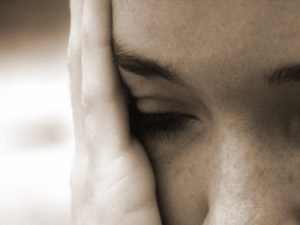Is Shame Getting In The Way Of Your Recovery?

DCF 1.0
When you or a loved one is struggling with an eating disorder, it can be hard to bring about stability and equilibrium within the family.
However, being aware of how shame, guilt and blame are affecting both your recovery and family relations can help to re-establish equilibrium in every aspect of your life.
Shame and the Self
Shame plays a big role in eating disorders and a person’s feeling towards food. Shame is also closely related to self-esteem and to the way a person views him or herself. It is the intense emotion that causes a person to feel as though he or she is not worthy of love and help. This emotion has certain characteristics that make it uniquely powerful in shaping beliefs about the self. It is associated with surrender and defeat, and it’s a powerful basic emotion that is related to our survival instinct.
Take, for example, when a wounded animal slinks away from a fight; it is demonstrating a posture of shame, which prevents it from being killed by its attacker. It is in our nature as human beings as well to shrink from danger and to seek self-preservation. The first instinctive response of shame is to withdraw or to hide. As children we learn that “bad” behavior will get us punished and thus even as adults we turn to lying and hiding when we have done something we believe to be “bad.” It is for this reason that many struggling with eating disorders prefer to be secretive of their binge eating, purging or restricting.
Secrets and Toxic Shame
A second response that is related to shame is aggression, which can occur after an awkward or traumatic situation. This surge of aggression can be dangerous and can manifest itself through self-destructive behaviors. In those who are struggling with eating disorders, aggression can also turn into a secret, angry grudge against the self. In many cases this results in self-inflicted punishments such as restricting and purging in the case of someone struggling with eating disordered habits.
Secret shame is also often privately revisited by the sufferer in an attempt to cope with emotional pain. When this happens, shame and low self-esteem become more deeply rooted within someone struggling with an eating disorder. When shame is kept secret and a person returns to it constantly, the pain can develop into “toxic shame,” a kind of hypersensitivity to possible failure and rejection. Toxic shame is thought to be at the center of compulsive disorders, including eating disorders such as anorexia, bulimia and binge eating disorder, by many addiction experts.
Shame and the Family
When serious emotional problems, such as eating disorders, come to light, family members and even friends can also feel a sense of guilt and shame. Intense guilt and feelings of helplessness are often triggered and can evoke patterns of avoidance and anger. Often, these feelings can be misinterpreted by a person suffering from an eating disorder, who may feel as though he or she is being blamed for his or her condition.
Feelings of shame and guilt are often not discussed openly and clearly, which can create confusion. Excessive shame can make someone feel trapped and alone. Techniques for managing these emotions are teachable and can be easily learned through individual or family therapy. The best way to fight the stigma of eating disorders is to be open and clear and to support each other through recovery.
Source: PsychCentral.com
 Eating Disorder Self Test. Take the EAT-26 self test to see if you might have eating disorder symptoms that might require professional evaluation. All answers are confidential.
Eating Disorder Self Test. Take the EAT-26 self test to see if you might have eating disorder symptoms that might require professional evaluation. All answers are confidential.